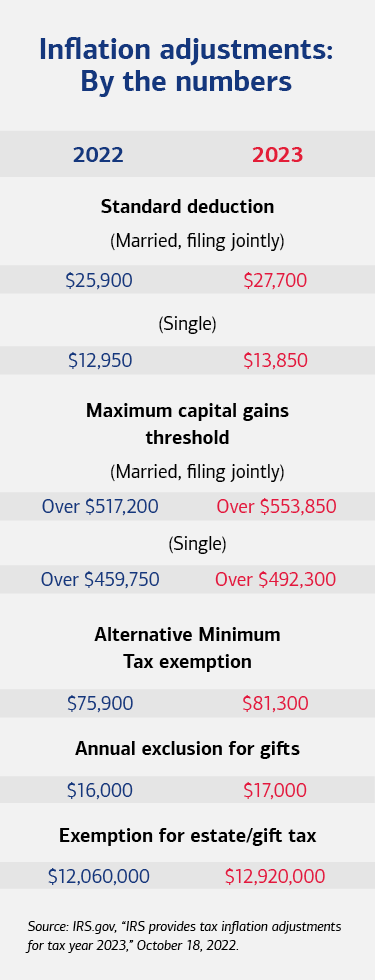Inflation adjustments that could affect your taxes
Discuss these with your tax advisor — and visit IRS.gov for complete list
What's adjusted?
Federal income tax brackets
Federal capital gains thresholds
Federal standard deduction
Retirement savings contribution caps
Alternative minimum tax exemption and its phase-out range
Social Security benefits
What's not?
3.8% net investment surtax thresholds
$500,000 exclusion ($250,000 for individuals) on the sale of a primary residence
State tax brackets, deductions or exemptions
Income tax thresholds on taxation of Social Security benefits will not be adjusted
Sources: IRS.gov; Chief investment Office, Market Volatility and Rising Interest Rates: tax Consequences and Favored Planning Techniques," August 2022




